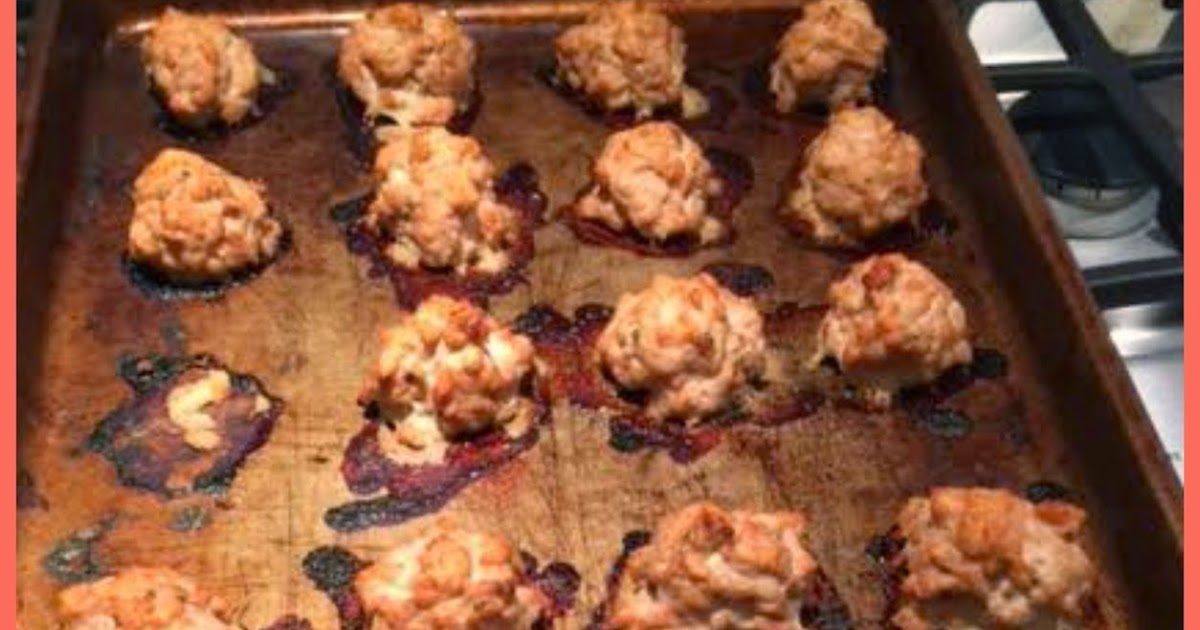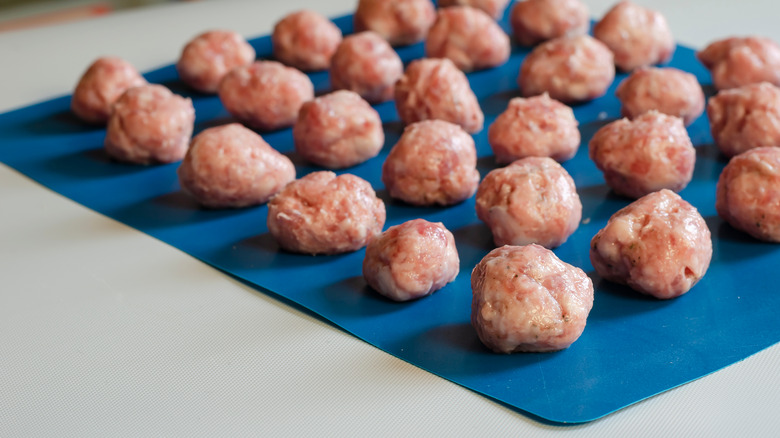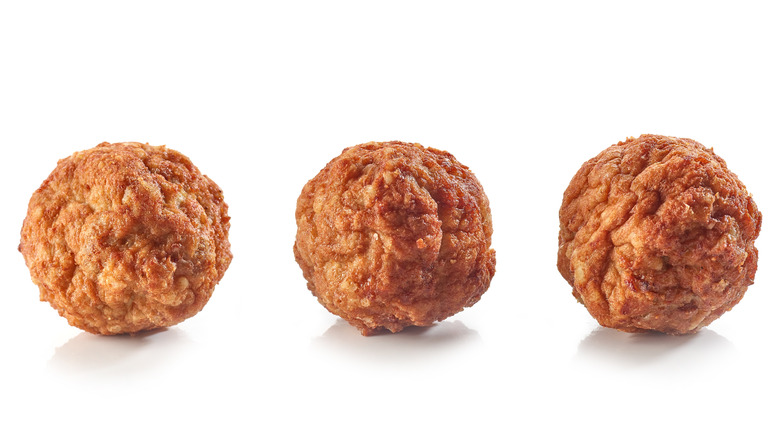Meatballs are one of those rare foods that almost everyone likes. Besides being tasty and relatively inexpensive to make (most are made of affordable grocery staples), theyre just so much fun to eat and look at. Even the big ones are cute. And the fact that they appear in cuisines around the world, from classic Italian-American spaghetti and meatballs to gently-spiced Swedish meatballs, to hearty Chinese lions head meatballs, speaks to their near-universal appeal.
But while meatballs recipes are fundamentally simple, this doesnt mean that theyre always easy to make. Frustrated home cooks often find themselves with rubbery or mushy meatballs, ones that disintegrate as soon as they hit the pan, or sticky raw meatballs that refuse to let go of your hands no matter what you do.
It might seem hopeless at first, but never fear If youve encountered any of these problems, dont worry, as youre far from alone. And luckily, none of these problems require rocket science to correct. With a bit of care and perhaps some extra time, you can be creating amazing meatballs in short order. Here are some common mistakes everyone makes while cooking meatballs and simple ways to fix them.
Turkey meatballs are a delicious, healthier alternative to beef and pork meatballs. However, it can be tricky to achieve the ideal tender, juicy texture when working with lean ground turkey. The result is often unappealingly dense or rubbery meatballs.
But with a few simple tweaks and techniques, you can create turkey meatballs that are moist, succulent, and perfectly textured every time. In this comprehensive guide, we’ll explore the common causes of rubbery turkey meatballs and provide practical solutions to help you master the art of crafting these tasty treats.
What Causes Rubbery Turkey Meatballs?
There are a few key culprits that can lead to dense. rubbery turkey meatballs
-
Overmixing – Excessively mixing the meat mixture activates proteins called myosin, causing them to form dense protein strands that result in a tough, rubbery texture. For tender meatballs, mix just until the ingredients are fully incorporated.
-
Improper cooking temperature – Undercooked meatballs are unsafe, while overcooking causes dryness and rubberiness. Use a meat thermometer and cook to an internal temperature of 165°F.
-
Insufficient fat – Extra lean ground turkey lacks the natural fat that keeps meat moist Consider adding olive oil, cheese, or heavy cream
-
Overhandling – Excess handling can overwork the proteins. Handle the meat gently when mixing and shaping.
-
Old breadcrumbs – For the best binding and moisture, use fresh breadcrumbs.
Tips for Perfectly Textured Turkey Meatballs
With a few simple tweaks, you can achieve tender, juicy turkey meatballs every time:
-
Gently mix – Fold ingredients together until just combined to avoid overworking the proteins.
-
Monitor temperature – Cook to 165°F internally. This ensures safety without overdrying.
-
Compensate for leanness – Include a fat source like olive oil or cheese to add moisture.
-
Handle gently – Limit handling during prep and shaping to prevent overworking.
-
Use fresh breadcrumbs – They hold moisture better than stale crumbs.
-
Let rest before serving – Allowing meatballs to rest for 5-10 minutes helps them retain moisture.
-
Bake on parchment paper – Baking on parchment prevents sticking without added fat or moisture loss.
-
Simmer gently in sauce – Gently simmering cooked meatballs in sauce adds moisture. Avoid vigorous boiling.
-
Blend meats – Combining ground turkey with ground pork or beef introduces fat and enhances moisture.
-
Add an egg – Eggs help bind the mixture without drying it out.
-
Use ice water – Lightly misting the meat mixture with ice water before adding other ingredients increases moisture.
Handling Meat Mixtures
Shaping meatballs from sticky ground turkey can be challenging. Here are some tips:
-
Chill the mixture – Chilling makes meat mixtures easier to handle. Refrigerate for 15-20 minutes before shaping.
-
Use parchment paper – Shape meatballs on parchment to prevent sticking.
-
Lightly coat hands – Rubbing hands with oil makes shaping easier.
-
Use a scale – Portioning mixture into same-sized balls ensures even cooking.
-
Don’t overpack – Gently shape balls without compressing too densely.
Mastering the Meatball
With the right techniques and a little practice, you’ll be able to create moist, tender turkey meatballs full of flavor. Remember to handle the meat gently, compensate for leanness, and follow proper temperature guidelines. In no time, you’ll impress everyone with your perfect turkey meatballs.

Shaping your meatballs with dry hands

A basic reality when it comes to making meatballs is that it gets messy — after all, youre going to be working with a lot of sticky, gooey ingredients and shaping them with your hands. When you do so, you may find the meatball mixture will stick all over you, making it virtually impossible to form it into smooth, even balls. One way to counteract this is to ensure the meatball mixture is cold when you shape it. Done right, it will be firmer and a bit less sticky.
An extra step you can take here is to wet your hands with cold water before shaping the meatballs. Since youll have to re-wet your hands frequently as you work, its a good idea to keep a bowl of cold water close by while you work. Alternatively, you can grease your hands with olive oil before shaping your meatballs. Again, you may find you have to re-apply the oil as you work.
Making your meatballs the wrong size

Meatballs are fun to make and eat in part because theyre so versatile. They can serve as everything from a cocktail appetizer to a stand-alone meal. And depending on where and how theyre served, meatballs can come in a range of sizes and offer a range of different, but equally appealing, eating experiences. But a common mistake busy cooks make is neglecting to consider the size of their meatballs. This can make a big difference in both the appearance of a dish and how agreeable it is to eat.
The right size for your meatballs will depend on how theyre served. Meatballs in a soup, for example, should be small enough to be consumed in a single bite. If theyre going to be served with spaghetti, they can be around 2 inches, or the size of a golf ball. If youre using the meatballs for sandwiches or as a main dish, you can make them slightly bigger still.
However, giant meatballs, like those veering towards hamburger size and beyond, are polarizing. While some chefs have created 7-pound stuffed meatballs for special promotions, others wonder what the purpose of such stunts may be. After all, at what point are you just making meatloaf?
The BEST Baked Turkey Meatballs | LOADED With of Flavor!
FAQ
Why did my meatballs come out rubbery?
How do you make meatballs not rubbery?
Why is ground turkey rubbery?
Why are my turkey meatballs dense?
How to make Turkey meatballs?
For measuring, you will need 1 cup, 1/2 cup, 1/4 cup, a tablespoon, a teaspoon, and 1/2 teaspoon. To make turkey meatballs, start by putting ground turkey and minced garlic in a large bowl. Then, add the grated (or finely chopped) red onion, along with an egg, breadcrumbs, dill, oregano, salt, and pepper.
How do you cook Turkey meatballs in a slow cooker?
Use a rounded tablespoon to form the turkey mixture into meatballs. Heat the olive oil in a large skillet over medium high heat. Lightly brown the meatballs for 1-2 minutes per side. You may need to work in batches depending on the size of the pan. Add a thin layer of marinara sauce to the bottom of the slow cooker. Add the meatballs.
How do you make Turkey meatballs with oats?
Made with heart heathy oats these turkey meatballs bake in marinara sauce for an easy meal you can add on top of pasta, have on their own, or with veggies. Add oats and milk to a mixing bowl. Let rest 2 to 3 minutes. Add egg, parmesan cheese, garlic, parsley, and salt to the bowl. Stir a few times to lightly mix everything.
Are ground Turkey meatballs healthy?
One of my favorite things about this recipe is that it’s made with lean ground turkey. This means that the meatballs are packed with nutritious protein and are much lower in fat than other types of meatballs. Plus, the addition of garlic, onions, and fresh herbs gives the meatballs a flavorful Mediterranean twist.
